No Place to Live Means Not Many to Hire:
Acadia’s Housing Problem Helps Spur New Projects and Ideas for Bar Harbor, Park, and FOA
BAR HARBOR—Multiple housing projects are in the works for Acadia National Park with some projects completed, others well underway, and some in the planning stages.
According to the Bangor Daily News’ Bill Trotter, Acadia National Park Superintendent Kevin Schneider said during a park advisory commission meeting earlier this week. “The cost of real estate is only going up here, faster than our wages.”
Wages based on federal criteria and factors and the local cost of living combine to make the housing situation especially tough for park employees. The focus for the park is currently on seasonal employees. The park does not currently provide year-round housing.
At this week’s Acadia Advisory Commission meeting, Schneider said that according to a recent study done by the National Park Foundation, two-thirds of Acadia's year-round workforce does not earn enough to buy a home within 60 minutes of the park.
Still, the park and others have been looking toward solutions to try to help the federal employees find housing.
The eight bedrooms at Dane Farm in Seal Harbor are for seasonal employees. The former Kingsleigh Inn in Southwest Harbor is also seasonal housing. Both are recent developments in park housing, occurring in 2024 and 2023.
“Seasonal employees are essential to operating the park and providing visitor services in the park from May to November,” said Schneider at the time of the Kingsleigh purchase. “Last year, we were not able to fill all of our available seasonal positions largely because of the lack of housing options in and around Acadia. By expanding housing options, the Kingsleigh property will increase our capacity to recruit and retain seasonal staff members. We are incredibly grateful to Friends of Acadia for helping to support this need.”
One of those new projects is Harden Farm, which is located off Harbor Farm Road in Bar Harbor and is currently under construction.
“Phase 1 of construction at Harden Farm is well underway! We are currently working with a contractor to construct 28 bedrooms in three, one story buildings at Harden Farm. The roof tresses were placed this week, and it’s really beginning to take shape,” Acadia National Park Public Affairs Officer Amanda Pollock said.
The Harden Farm property had hosted eight seasonal apartments for decades.
The second phase of the expansion adds another 28 bedrooms on that same site. Bids for the project went out this week, Pollock said. “We are excited to see this project finally come to light.”
How many people are there to find homes for is a bit murkier. Pollock didn’t verify the number of seasonal positions and how many are filled. Those numbers have been commonly and previously identified as 175 seasonal.
“The National Park Service is focused on ensuring that every visitor has the opportunity to explore and connect with the incredible, iconic spaces of our national parks. Our dedicated teams are committed to meeting the evolving needs of our visitors and ensuring memorable, meaningful experiences for all,” she said. "As in past years, staffing levels and operational needs can vary based on a number of factors, including seasonality, budget timing, and ongoing assessments of park priorities. While we don’t comment on specific personnel matters, our employees are experienced problem solvers who adapt to changing conditions and remain focused on delivering high-quality experiences for every visitor.”
Approximately 3.7-4 million visits occur in Acadia National Park, some of those visits can be repeat visitors.
The park has also utilized a Southwest Harbor campground to help staff employees at 13 RV hook-up campsites. The former White Birches Campground has ten sites filled. Three are vacant, Pollock said Friday.
Another large project will happen in Town Hill on an approximately 55-acre site, which was part of a congressional mandate and is meant to be used for housing. The park holds up to 15 acres of the site and the Town of Bar Harbor receives at last 40 acres “for affordable workforce housing to benefit the whole island,” according to Bar Harbor Community and Housing Planner Cali Martinez.
Island Housing Trust’s potential involvement regarding the actual housing development has not been decided yet nor has the exact developer. However, IHT is currently involved in helping the town establish a potential right-of-way to the parcel. This right-of-way is still being determined.
“We are working with the Town of Bar Harbor to complete a comprehensive analysis of site conditions; outline the types and quantities of projected Town and NPS housing needs; and conduct a housing development suitability analysis, including a proposed division of land. We are not sure at this time if that housing will be used for seasonal employees, permanent staff, or a mixture of both,” Pollock said.
The parcel was originally acquired by the National Park Service in 1960. It was originally designated to be transferred to Bar Harbor’s ownership to serve as a solid waste transfer station for Mount Desert Island. That project didn’t happen. In 2022, Congress changed the parcel’s purpose to “affordable workforce housing” that is meant to benefit not just Bar Harbor, but the entire island. It also said that 15 of the acres should be retained by the park service.
According to the December presentation by the Bar Harbor Planning Department, the project is important for multiple reasons.
There is limited land on Mount Desert Island where people can build. People cannot build in Acadia National Park, which comprises a significant portion of the island. However, the town said, there are labor shortages. A lack of available and affordable houses makes it hard to attract employees and keep many younger employees and families.
Rising building costs, property valuations, and limited job opportunities with upward mobility are other factors.
Traffic congestion at the head of the island is also often cited as a factor.
According to the Bar Harbor Housing Analysis and the Maine Housing Needs Production Study, it’s expected that there will be a need for 616 new year-round homes (apartments, houses, and condos) by 2033. The entire county is expected to need between 1,900 and 2,200 year-round housing units by 2030. Those projections, however, do not align perfectly.
Either way there’s a need and much of that need is for year-round homes to sustain a year-round community. But seasonal homes (of multiple types) are also needed by park employees and employees who work the restaurants, hotels, golf clubs, work the marinas and harbors, and clean the homes and businesses in the summer.
Bar Harbor has been actively working on allowing, creating, and tweaking multiple types of allowed housing (employee, shared accommodations, accessory dwelling) in the hopes of encouraging its development. The town has also capped short-term rentals and is creating an understanding of housing and a strategy overview.
The work has been down by the town’s hired planning staff and appointed planning board following direction from the town’s elected council.
“The council has given us a clear mandate. I just think we need to talk about housing. It’s the biggest crisis we’re facing,” Bar Harbor Planning Board Chair Millard Dority said at a planning board meeting this past week, but also deal with the board’s regular business of reviewing projects, land use amendments, and the town’s current moratorium on lodging.
As of June 6 there were nine homes for sale in Bar Harbor on Zillow that were under $750,000. There are 23 homes when there is no maximum set.
Nine homes were priced at under $750,000 in Southwest Harbor. That rises to 18 available when no maximum price is selected.
Four homes in Tremont are for sale at prices $750,000 and under. That number is doubled when there is no price limit.
There are seven homes available in Mount Desert that are under $750,000. When there is no maximum price set that number jumps to 26.
“It is critical to have [housing] for the staff that we need,” Trotter reported Schneider saying.
Friends of Acadia has also been working toward getting park employees and others seasonal housing.
A recent “Raise the Roof” campaign brought in 321 gifts, ranging from $8 to $1,500,000. The goal was to raise $10 million dollars to build or provide seasonal workforce housing.
The advocacy group that supports the park in multiple ways built two apartments in Seal Harbor that comprise the Dane Farm property. The group gave that property to the park. It’s also purchased town homes on the Jordan River Road in Trenton for seasonal Island Explorer bus drivers.
“This is an ideal location for Island Explorer’s seasonal employees given that it’s only about a mile from Downeast Transportation headquarters and the new Acadia Gateway Center,” said Friends of Acadia President and CEO Eric Stiles. “We are pleased to provide workforce housing that helps Downeast Transportation find, recruit, and retain Island Explorer bus drivers, especially knowing that we’ll need an increased number of buses and drivers when the Acadia Gateway Center opens next spring.”
That bus system brings commuters on and off the island, but is mostly used by tourists visiting the park. FOA is also the group that bought the Kingsleigh Inn.
The Bar Harbor Story is generously sponsored by Acadia Brochures of Maine.
LINKS TO LEARN MORE
https://www.barharbormaine.gov/202/Planning
Follow us on Facebook. And as a reminder, you can easily view all our past stories and press releases here.
If you’d like to donate to help support us, you can, but no pressure! Just click here (about how you can give) or here (a direct link), which is the same as the button below.
If you’d like to sponsor the Bar Harbor Story, you can! Learn more here.




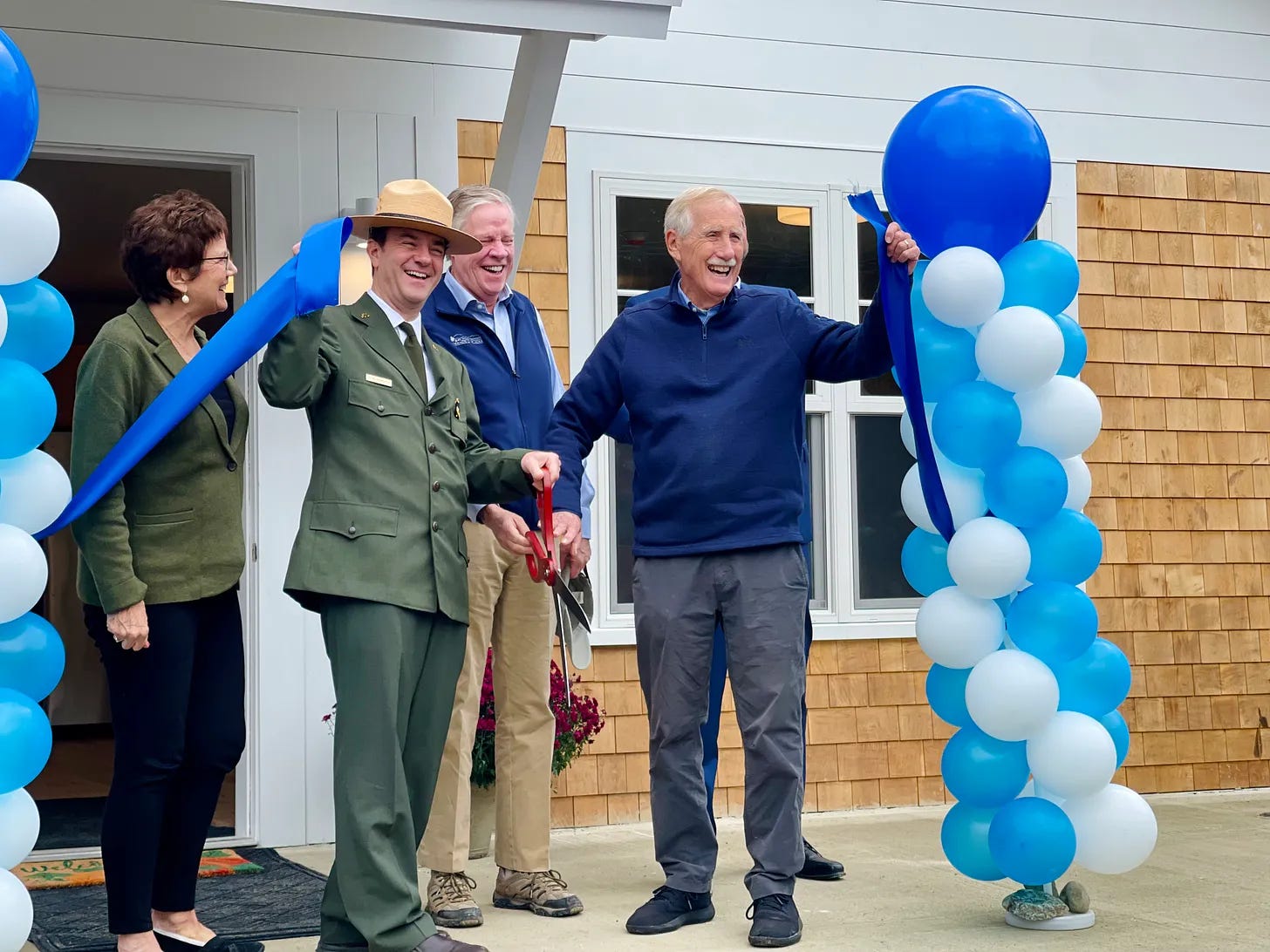
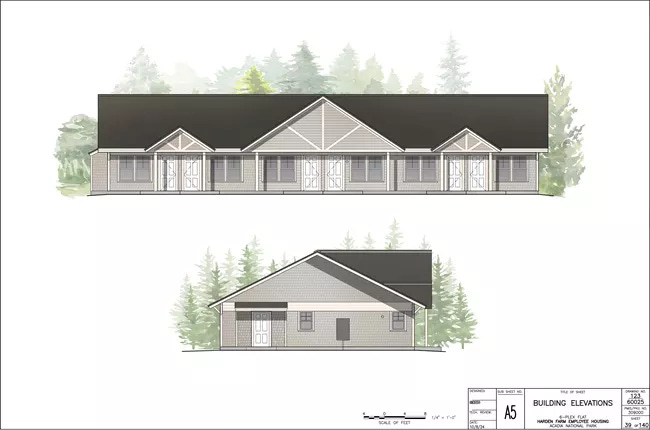

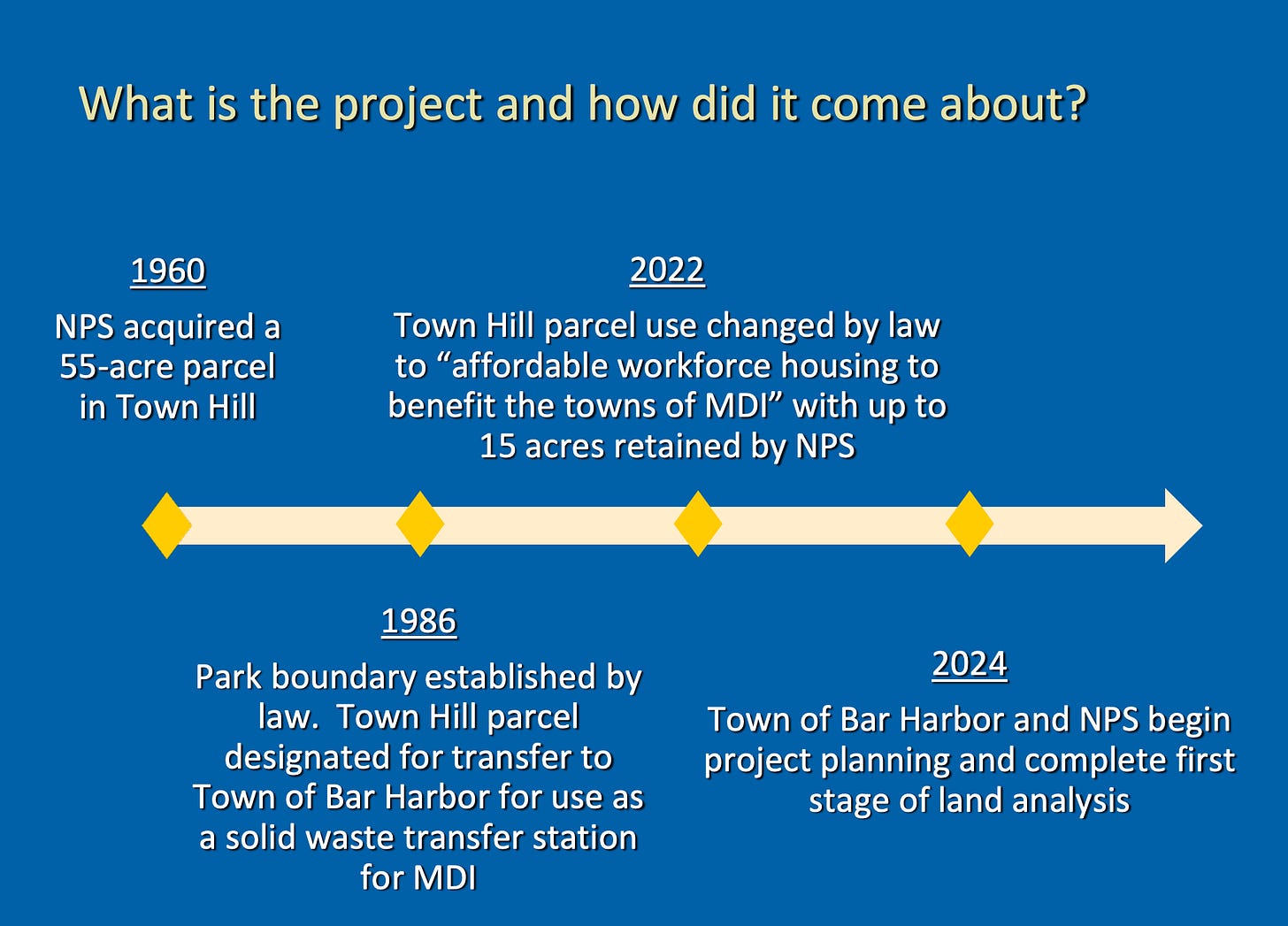



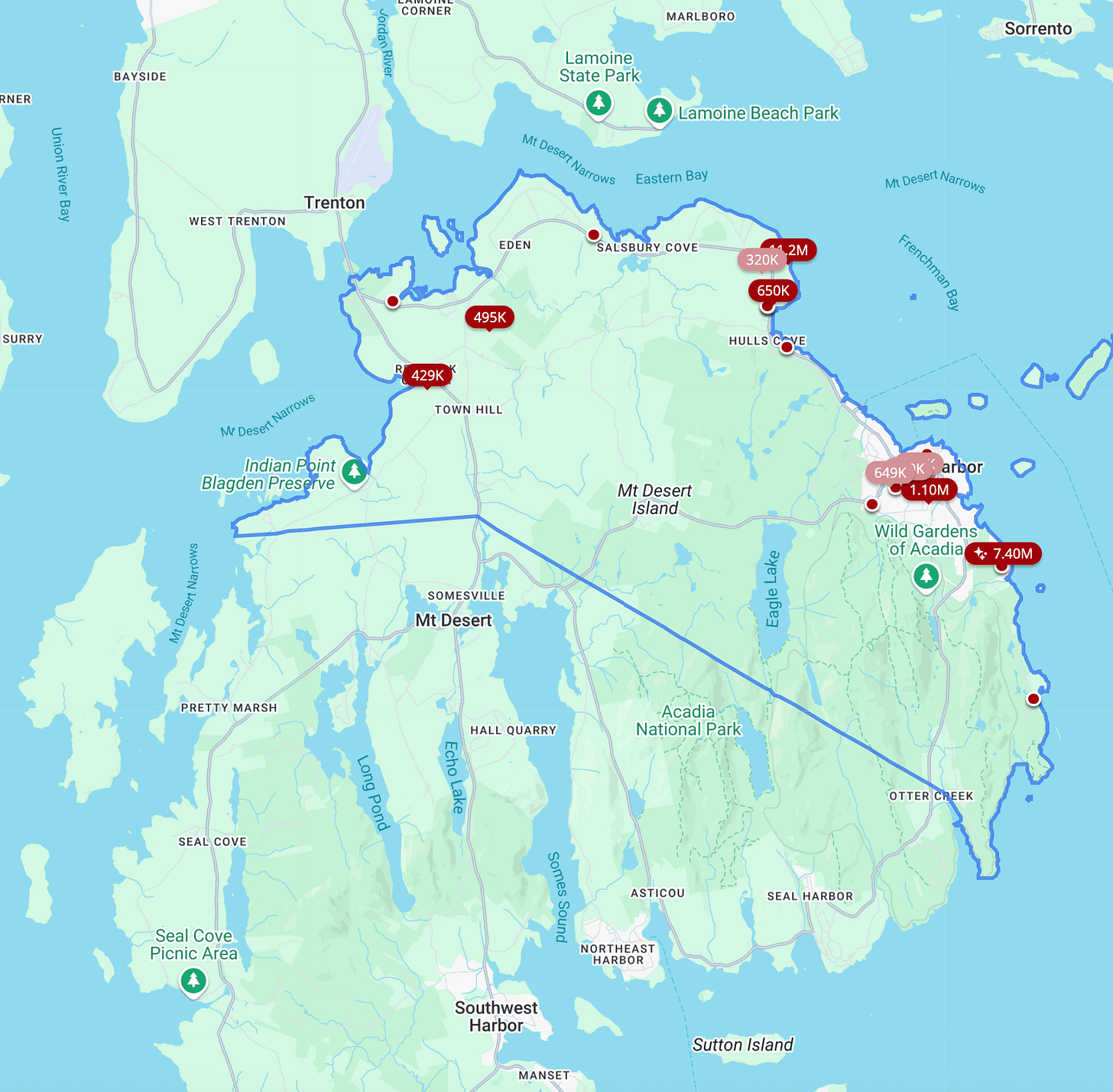
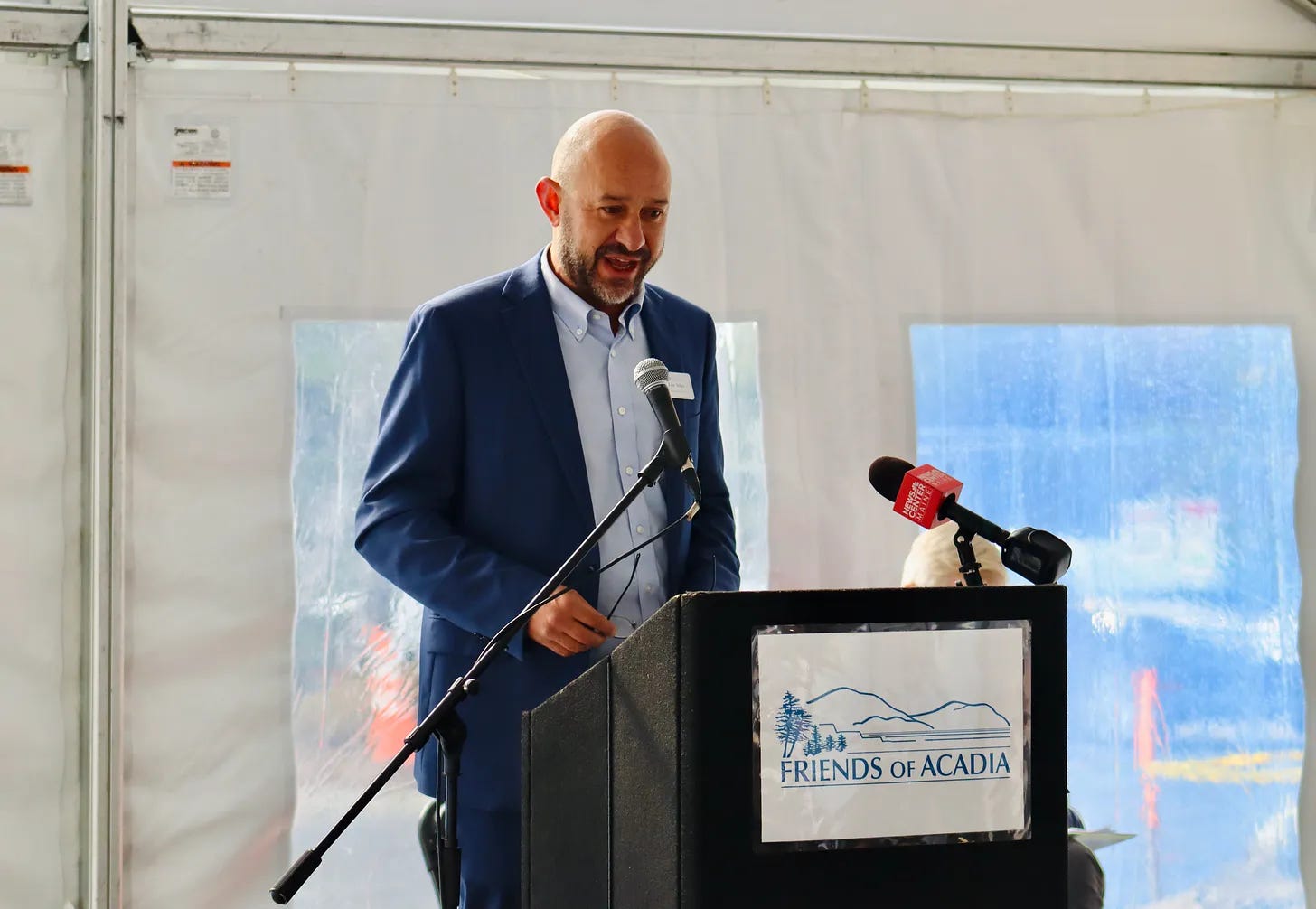



We have members of Friends of Acadia for years and are proud to see these projects coming to fruition for housing on MDI; and has been an ongoing problem for not only Acadia Park employees,but also for other seasonal and year-round workers and families!